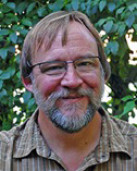Brad Sageman: Faculty Experts
Not seeing the results that match your search? FILTER BY CATEGORY AND FIELD
Brad Sageman
Weinberg College of Arts and Sciences
Professor of Earth and Planetary Sciences
About
Areas of Focus
- Geology and Earth history
- Paleoclimate
- Climate change
- Energy and sustainability
- Ocean acidification
- Decarbonization
Work/Research
- Stratigraphy, particularly the development of geologic time scales, as well as analysis of paleoenvironmental conditions, such as temperature and oxygen levels.
- Studies of the Earth’s paleo-carbon cycle and its relationship to changes in the climate.
- Development and application of astrochronologic and sequence stratigraphic techniques to improve high-resolution time scales for ancient stratigraphic sequences.
- Geographic focus on the Cretaceous Western Interior basin of North America, but recent work has included a number of other research sites in Europe and Asia, as well as ocean drilling core samples.
Career
Sageman’s research is grounded in stratigraphy and sedimentology — the study of how sedimentary rocks form, their relationship to geologic time, and their use in reconstructing ancient oceanographic and climatic conditions. The work currently has two main foci:
- Refinement of geologic time scales and geologic correlation spanning key intervals of interest, especially via the integration of biostratigraphic, geochronologic, astrochronologic and chemostratigraphic tools
- Analysis of major perturbations in the Earth's biogeochemical cycles (e.g., the carbon cycle) and their relationship to changes in oceanographic and climatic conditions.
A particular specialty has been the study of Mesozoic Ocean Anoxic Events and other similar ocean-climate perturbations, that serve as models for the behavior of the Earth System during significant changes in atmospheric greenhouse gas levels (like the one we are experiencing now due to anthropogenic emissions).
In recent years, he has worked with Northwestern and other colleagues to apply insights from studies of Earth's past to topics of more immediate relevance, such as ocean acidification and decarbonization. He is currently collaborating on two projects to develop a direct CO2 air capture facility in Illinois, and to study CO2 sequestration via enhanced rock weathering.
